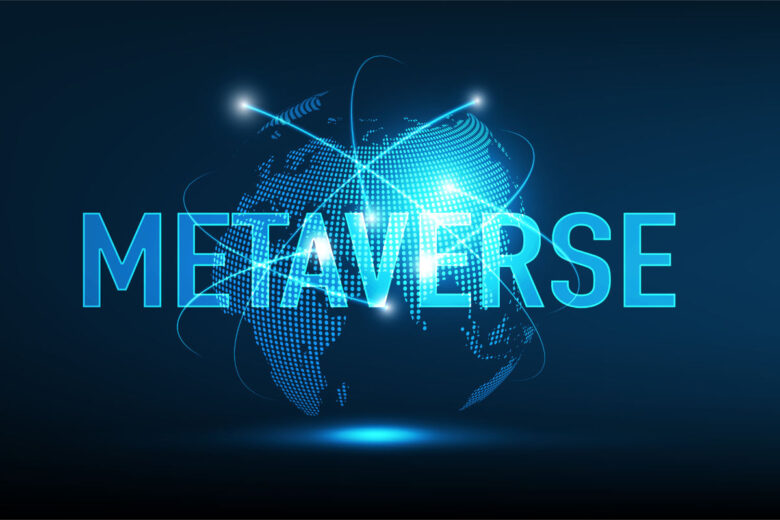The metaverse as a concept has received significant focus with the advancement of technology. It is characterized as a virtual universe in which users can interact, work, socialize, and play through augmented and virtual reality. Many technology companies are investing in the metaverse as they view it as the future of the internet.
However, the concept remains at a baseline level and requires a lot of attention. What is the Metaverse? How does it function, and what changes will it bring in our lives? The Metaverse aims to bring a more detailed perspective explaining the core components, applications, and expectations shortly. After reading this article, you will understand what the Metaverse is and its importance in modern society.
What is the Metaverse?
The metaverse can be defined as a singular collective space that includes both digitally rendered and physically actual environments. It can be thought of as an enhanced 3D internet, an immersive digital universe where users can socialize through avatars. The term “metaverse” was popularized in Neal Stephenson’s 1992 novel Snow Crash; however, the actual concept is materializing now due to progress in VR, AR, blockchain technology, and AI.
Unlike the internet and website-centric world people are accustomed to, the Metaverse provides a unified, persistent virtual environment where users can seamlessly socialize, buy and sell virtual real estate, and conduct economic activities. From promethian virtual concerts to holding day jobs and purchasing property in fictive cities, the Metaverse is anticipated to transform the human experience in the digital realm.
What Makes the Metaverse Function?
The metaverse combines many technologies that enable it to operate. Its essence is based on the use of VR and AR technology to enhance user experiences. Users can access these digital worlds through virtual reality headsets such as PlayStation VR and Oculus Quest, while smartphones and smart glasses enable the use of AR as it projects digital data over the physical realm.
Also, the Metaverse is powered by blockchain technology, which permits the trading and ownership of digital properties through NFTs and cryptocurrencies. Artificial intelligence is equally important because it allows users to have real virtual interactions and automates several of the interactions in the Metaverse. Moreover, cloud computing guarantees anywhere access to these virtual worlds, further integrating diverse platforms. The aim is to have a fully immersive interactive space that emulates real-life experiences while boundless opportunities await.
Applications of the Metaverse:
The metaverse is applied in many sectors, including gaming, where it provides a more engaging experience for users as they can interact with their friends in virtual worlds. Games like Roblox and Fortnite have incorporated Metaverse features, providing users with virtual environments where social interactions go beyond gaming. Companies are also considering virtual offices, meetings, and conferences, which would cut down on the need for physical presence while improving collaboration.
The metaverse can change education for the better by developing interactive learning where students can visit historical sites or perform scientific experiments in virtual labs. Virtual health consultations, medical training simulations, and even mental health therapy take place in the Metaverse, making healthcare another sector that is benefitting. The ability for users to purchase, sell, and develop virtual land makes real estate investing appealing. These activities illustrate how the Metaverse can change various aspects of life.
Issues and Problems of the Metaverse:
As promising as the future of the metaverse may be, there are still several challenges and issues related to it. Privacy and security stand out as major concerns since online activities can make many identity-sensitive details available to cyber criminals. Protecting users within virtual worlds is an enormous challenge during these times; the Metaverse is growing. Furthermore, the issue of accessibility remains problematic, as sophisticated VR and AR headsets are expensive, restricting participation to those who can afford it.
The metaverse’s decentralization also presents its own set of issues concerning law and governance. Who has authority over these digital environments? How are conflicts and disputes settled? These are pressing questions that need answers. Furthermore, excessive exposure to virtual worlds can be psychologically damaging, leading to addiction and disconnection from real life. Solving all these problems will be obligatory to allow the development of the Metaverse as a safe, inclusive, and ethical space.
The Metaverse Life:
The Metaverse is far from being fully realized; however, it does have potential. With the advancement of technology, we can hope for more digitally immersive experiences. Companies such as Meta (previously known as Facebook), Microsoft, and Google are eager to construct Metaverse ecosystems, which would serve as interconnected virtual platforms of endless possibility.
The emergence of decentralized systems alongside blockchain-based virtual economies further indicates that users are set to gain more control over their digital assets. At some point in the future, the Metaverse may be as crucial to our existence as the internet is today, though how its challenges and inclusivity factors are dealt with will determine its success. The Metaverse sets the stage to reinvent entertainment, commerce, and communication, but developers, users, and businesses will shape its influence through their decisions.
Conclusion:
The Metaverse is the next stage in digital evolution, integrating virtual reality, artificial intelligence, and blockchain technology for a comprehensive and immersive experience. It can revolutionize entire industries, social interaction, and economic prospects. Nonetheless, privacy issues, accessibility, and ethico-legal frameworks need to be put in place to attain optimal effectiveness.
In its current trajectory, the Metaverse will soon be part of our daily routine activities and influence how we work, socialize, and participate in leisure activities. Whether it becomes a utopian world of one’s imagination or a dystopian realm that people escape to will be decided by the governance and governing infrastructure put in place. Rapid technological developments have transformed the Metaverse from a futuristic idea into an emerging reality poised to redefine the internet and life in unprecedented ways.
FAQs:
1. Is the Metaverse equivalent to virtual reality?
No, the metaverse is broader in scope and more versatile in function than virtual reality. While VR serves as one of its foundational pillars, it encompasses augmented reality, blockchain, AI, and a plethora of multi-dimensional digital interactions.
2. Is it feasible to earn revenue through the Metaverse?
Countless users have started making money from trading virtual properties, NFTs, gaming, digital entrepreneurship, and crypto transactions in the Metaverse.
3. Is the metaverse safe?
The Metaverse has risks associated with privacy and security, including the potential for data leaks, cybercrime, and the theft of one’s digital identity. It is being worked on, but users still need to exercise discretion.
4. How can I access the Metaverse?
A user may access the Metaverse using a computer or smartphone with compatible software, a VR headset, or an AR device. Users can enjoy metaverse experiences on platforms like Decentraland, Roblox, and Horizon Worlds.
5. Will the metaverse replace the internet?
Not completely. The metaverse furthers the development of the internet by offering a more engaging experience, but the traditional form of the web will still exist parallel to this new immersive world.




